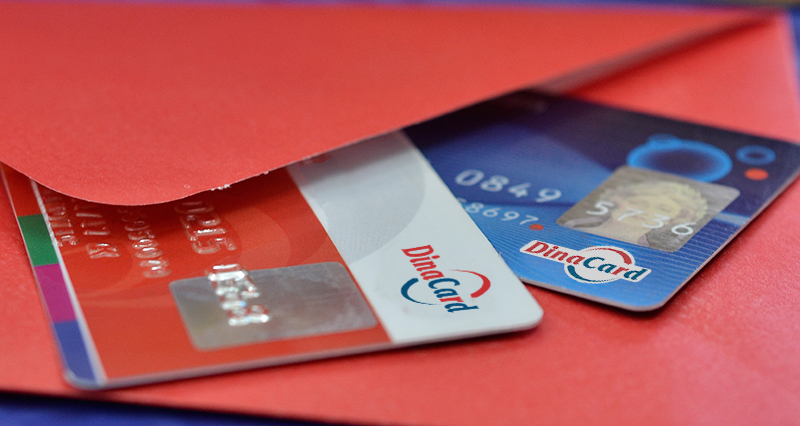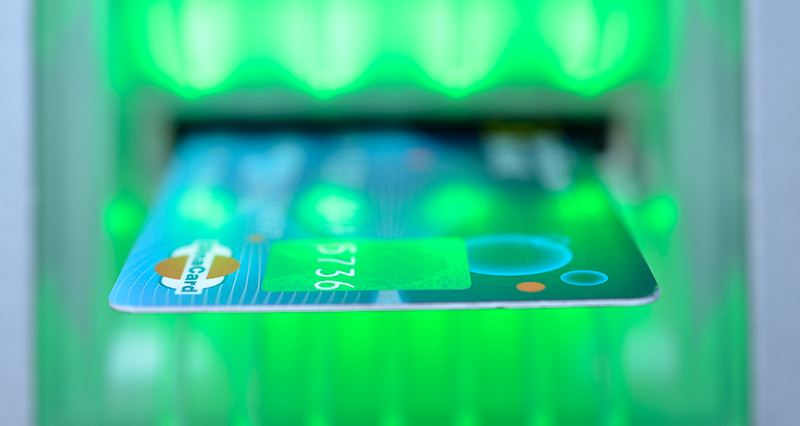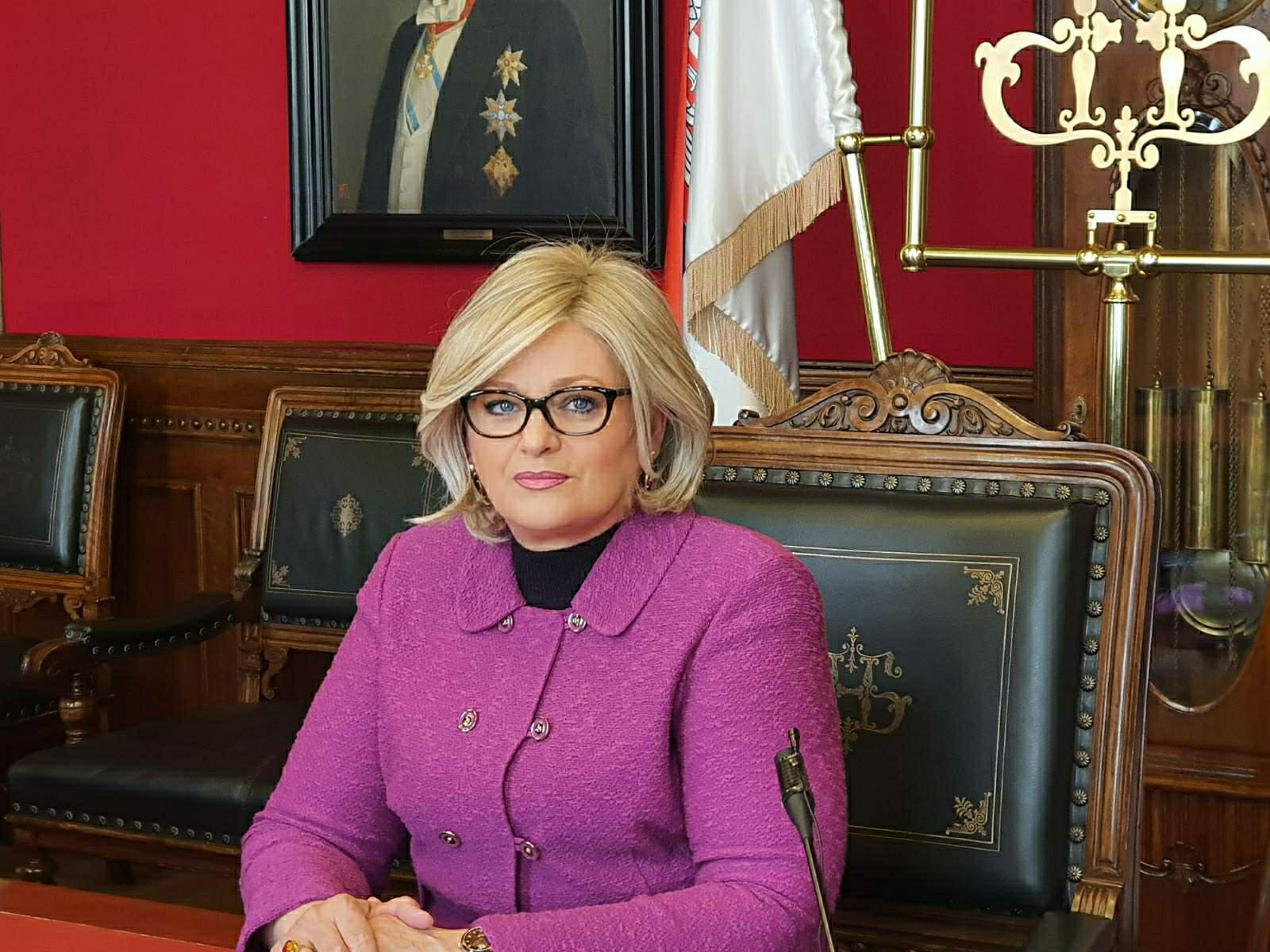06.08.2021.
In the course of nine years, the NBS, headed by Governor Jorgovanka Tabaković, has fully met its statutory objectives – price stability has been achieved and preserved, and financial stability has been strengthened. As a result, our citizens and corporates can more easily do business and make plans, and our economy can develop further on sound foundations.

Results:
Having recognised her contribution to the stabilisation and growth of the Serbian economy, the London-based monthly The Banker declared Governor Jorgovanka Tabaković the best governor globally and the best European governor for 2020. “Although I personally consider this award a recognition of changes in Serbia that we have been working on since the second half of 2012, the changes that the Serbian President with his associates, and myself with my associates have been working on, the award itself belongs primarily to Serbia and its citizens”, Ms Tabaković said on that occasion.
The NBS was the recipient of the City of Belgrade award “The Hero of Belgrade” because, as stated in the explanation, it preserved financial stability in Serbia through flawless functioning during the pandemic. “The heroes are all those who behind each decision and procedure see the people for the sake of whom we exist. We have worked just as our payment system has worked – incessantly, just as our hospitals, pharmacies, grocery stores, utility workers, police officers and soldiers have worked – because our motto is: with the people, for the people, for Serbia, whose mirror we are”, highlighted Governor Tabaković.
With the arrival of Jorgovanka Tabaković at the head of the NBS, the relative stability of the exchange rate has been ensured and preserved. Such stability has not been jeopardised even once during the past nine years, not even in the period of strong global turbulences.
Within nine years, the dinar has gained 0.9% against the euro and, at the same time, the NBS bought in the FX market EUR 3.2 bn net, of which EUR 745 mn in 2021. The NBS thus directly impacted on the increase in FX reserves (and financial security) of the Republic of Serbia in the healthiest way, since the purchase of foreign currency does not create any liability in the future.
The achievement and preservation of relative stability of the dinar was and remains crucial for the successful fulfilment of price and financial stability objectives (resolution of the NPL issue, a rise in dinar savings to record levels). All this gave full support to orderly public finance and more favourable conditions of government financing in the domestic and international market, while at the same time providing businesses and citizens with the certainty of doing business and planning.
According to the latest available data (4 August 2021), gross FX reserves reached a record level of EUR 14.7 bn, up by EUR 4.6 bn since August 2012. In the same period, net FX reserves more than doubled.
The structure of FX reserves has also been reinforced. To this end, the NBS headed by Governor Jorgovanka Tabaković has been increasing the share of gold in FX reserves for years already. Gold reserves today equal 36.7 tonnes – they made up 12.4% of FX reserves at end-July 2021, while in late 2012 they stood at 15.3 tonnes, i.e. they made up only 5.7% of total FX reserves of the country. Since end-2012 to date, they have increased by more than 21 tonnes (they more than doubled), while their value trebled – from EUR 0.6 bn to EUR 1.813 bn!
Numerous international financial institutions assess that the NBS pursues an adequate monetary policy. In raising Serbia’s credit rating a step away from investment grade, rating agencies quoted the results of the NBS as one of the important factors of the rating upgrade. Thus, as stated by Standard & Poor’s for a number of years already, the NBS has earned its credibility and proven its operational independence by the continuity of its results. They also assess that the exchange rate regime run by the NBS helps the economy successfully adjust to the movements in the international environment, and that the NBS interventions in the FX market contribute to preserving price and financial stability, growth of the country’s FX reserves to their record level and to a considerable lengthening of the maturity of dinar government securities.
The past nine years have also been marked by successful cooperation with the IMF. During that period, NBS Governor Jorgovanka Tabaković, serving also as Serbia’s Governor to the IMF, steered this cooperation towards building a partnership relationship, which is today the main feature of our country’s relationship with the IMF. By successful implementation of advisory, non-financial arrangements with the IMF through the precautionary Stand-By Arrangement (2015–2018), Policy Coordination Instrument (2018–2021) and the new 30-month Policy Coordination Instrument concluded in June 2021, Serbia sends a clear message to the international community that it pursues a credible development policy.
In November 2019, Mr Tao Zhang, the then Deputy Managing Director at the IMF, stated that the IMF was a witness to the success Serbia was achieving. “In the course of seven years, a not such a long period, Serbia has made a full turnaround in running the economy. It transformed its growth model – from growth based on unsustainable consumption, to the one driven by investment, exports and sustainable consumption growth. In Serbia, the central bank enjoys confidence and has a strong influence on the Serbian economy, while low inflation and a stable financial sector are an important support to sound public finance.”
The fall in the risk premium is another confirmation of the success of our economic policy. Nine years ago, Serbia’s risk premium was 250 bp above EMBI Global for dollar debt. Nine years later, Serbia’s risk premium has not only been reduced by around 420 bp, but is also around 180 bp below EMBI Global for dollar debt.
The environment of macroeconomic stability and favourable outlook is also conducive to FDIs whose inflow since early 2013 came at EUR 22 bn. These investments boosted productivity across a number of sectors, as well as wages and employment in the private sector. Thanks to their project and market diversification, FDIs helped to broaden the base of export products and markets and in the period since end-2012 Serbian exports doubled – from EUR 8.4 bn to EUR 16 bn in 2020 (the year affected by the pandemic), while this year they are expected to reach close to EUR 20 bn (an increase of around 140% relative to 2012). The greatest contribution to export growth comes from manufacturing, to which the major part of FDIs is channelled.
Genuine progress has been achieved in financial system dinarisation – all dinarisation indicators rose significantly relative to end-2012, posting record high levels:
Dinar savings have been on a continuous rise (22% in 2018, 30% in 2019, 17% in 2020 – despite the coronavirus pandemic) and have reached record high levels. In July 2021 they exceeded RSD 100 bn (RSD 100.5 bn). Relative to end-2012 they increased around 6 times.
All these are concrete confirmations of the greater use of the dinar in our financial system and hence the best proof of the growing confidence of citizens in the national currency and the central bank.
The NBS kept its leadership reputation in the segment of development of the domestic financial market. Immediately after the crisis broke out, we included dinar corporate bonds of domestic companies which met the appropriate criteria in monetary operations of liquidity provision to banks. That way we achieved two goals at the same time – we stimulated a more vibrant recovery of the domestic economy by creating an additional financing channel, and further improved the domestic capital market. Through issuance of dinar bonds domestic companies can achieve a series of advantages, such as lengthening the maturity of their liabilities and broadening the maturity range, diversifying the manner of financing, along with decreasing the currency risk of their financial sources.
The goal strived for since 2015 was achieved in 2021 – J.P. Morgan, one of the world’s leading financial institutions, included on 30 June 2021 three benchmark issues of dinar government bonds among its renowned indices of local currency bonds issued by advanced and emerging economies. By inclusion in these indices, Serbia became more visible for a wide circle of international investors, which contributes to more favourable terms of financing of the government and the economy.
Already in late June and in the first days of July we felt numerous positive effects of inclusion of dinar bonds in J.P. Morgan indices. In July, trading in benchmark 7Y, 10Y and 12Y securities increased two to three times relative to June and significant demand led to a noticeable fall in yields on these securities already in the first days of their inclusion in the family of indices – compared to data from early June, yields on three benchmark dinar bonds fell in early July in the interval from 33 to 41 bp. The local market has also welcomed a number of investors appearing for the first time.
“This is a success that we worked hard to achieve, a success that shows what kind of confidence Serbia has built in the international arena. This decision confirms the confidence foreign investors have in the sustainability of Serbia’s macroeconomic indicators, as well as in the sustainability of the implementation of responsible economic policies. The positive effects of this success are being felt in the domestic financial market as we speak – the demand for government dinar bonds included in the index has increased, leading to a significant rise in their market value“, said Governor Jorgovanka Tabaković on that occasion.




Relative to 2012, we have recorded:
The fact that we have constantly improved the regulatory and supervisory framework for banks, which is now aligned with the best international standards and practices in all aspects, and equivalent to those of the most advanced European countries, has allowed us to focus all regulatory activities in the time of the coronavirus on supporting citizens and businesses.
We were among the first central banks in Europe to adopt regulations enabling a halt in the repayment of debtors’ liabilities – by way of two moratoriums we enabled facilities for all citizens and corporates at a time when they needed them the most in order to weather the crisis more easily. More than 90% and 80% of debtors accepted the first and the second moratorium respectively, opting for the pause in the repayment of their liabilities. Additionally, in December 2020, we adopted measures as support to citizens and corporates who were not able to settle their obligations to banks due to the COVID-19 pandemic. In 2020, the NBS also passed measures facilitating citizens’ access to household lending, primarily for first-time flat buyers, as well as other facilities.
The inherited issue of NPLs was also resolved – as a combination of a systemic approach and results achieved in the macroeconomic sphere. Bearing in mind the scope of this problem, i.e. the inherited share of NPLs at around 20% (one-fifth of banking sector assets), their cut to 3.6% by June 2021, despite the pandemic, is a result that has been recognized by all. Higher quality of banking sector assets means a greater possibility for healthy lending activity that supports economic growth and employment.
In December 2019, the European Commission confirmed that our supervisory and regulatory requirements are equivalent to European ones in terms of the treatment of exposures in accordance with the EU Capital Requirements Directive. Serbia is the only country in the region that is not an EU member, but is included in the list of countries eligible for preferential treatment of investments. Such decision by the European Commission means an additional level of confidence for investors and another incentive for the development of our dinar financial market. Lower requirements for certain investments by banks doing business in the EU may additionally stimulate longer-term and even higher investments in Serbia, which can boost employment and the quality of services.
Interest rates on credit debt of Serbian residents abroad have declined significantly over the nine years – the weighted average rate in the first six months of 2021 was 2.4 times lower than the weighted average rate in 2012, which yet again gives validity to the NBS’s activities taken so far and is an incentive for future projects.
By taking over the supervision of FX and exchange operations of residents and non-residents as of 1 January 2019, as well as the task of issuing and revoking authorisations for exchange operations, the NBS further expanded its competences in terms of preserving Serbia’s financial stability.
Commitment to Serbia’s EU integration was demonstrated by the NBS since the very onset of Serbia’s EU accession process in 2014. The NBS is part of 11 negotiating groups, which is the largest number of chapters where a central bank is involved. The decision that we lead the negotiations in key economic chapters – Financial services (Chapter 9) and Economic and monetary policy (Chapter 17), as well as that we should be the second-lead institution for chapters Free movement of capital and Statistics, with active participation in the work of seven other negotiating groups, gives the NBS an important position in the EU integration process, especially in the domain of macroeconomic and financial policies.
All chapters where the NBS is either the lead or the second-lead institution have been opened.

| 14/12/2015 | 11/12/2017 | 25/6/2018 | 10/12/2018 | 27/6/2019 | 10/12/2019 |
|---|---|---|---|---|---|
| Chapter 32 – Financial control | Chapter 6 – Company law | Chapter 33 – Financial and budgetary provisions | Chapter 17 – Economic and monetary policy Chapter 18 – Statistics |
Chapter 9 – Financial services | Chapter 4 – Free movement of capital |
The NBS also has an important role in preparing a strategic national document – the Economic Reform Programme, with an active participation of the Governor in the annual Ministerial Economic and Financial Dialogue between the EU and the Western Balkans and Turkey. During the Dialogue, the European Central Bank and the European Commission have continuously assessed that the NBS pursues an adequate monetary policy, aligned with the inflation targeting regime, and that with its measurers it has significantly fortified the financial system. In the latest dialogue in July 2021, they stated that, by responding timely and robustly, the NBS gave significant support to Serbia’s speedy economic recovery during the pandemic and to the preservation of overall stability.
Through a number of regulatory activities, we have enabled the following:

The NBS’s important legislative activities, in cooperation with other relevant bodies, have made room for the improvement of the legal framework governing the prevention of money laundering and terrorism financing, while taking into account the use of modern technology in the financial sector (e.g. regulating the procedure for video identification of clients).The NBS’s important role in this area has been confirmed by the highest grades in terms of the alignment with international standards which the relevant international institutions (FATF and Moneyval) gave not only to the regulations governing the operations of financial institutions supervised by the NBS, but also to the efficiency of their implementation.

All of the important results achieved by the NBS serve one goal – to build a better and more prosperous country for us and our children. Striving towards this goal, we have undertaken perhaps the most important task: to build people. And that is why we remain open to the best, the young and the innovative, said Governor Tabaković.
Despite the increasing demand for talents in the knowledge-based market, we have succeeded in obtaining the best of them and being their first choice. We signed 15 memoranda on business cooperation with higher education institutions in Serbia and six memoranda with faculties from the Republic of Srpska. More than 600 students have had an opportunity to become familiarised with key operations of the central bank via internship. This year, for the first time, students at the University in Priština, temporarily located in Kosovska Mitrovica, have also had a chance to complement their theoretical knowledge, acquired during the studies, with practical work through our traditional summer internship.
Our objectives are defined by law – price and financial stability, and support to the economic policy. Stability, which we have provided for nine years straight, brings benefits to everyone – citizens and businesses, importers and exporters, investors and consumers, and as such, stability is the key precondition for easier planning, high and sustainable growth, and a safe future. We remain the most reliable partner to our Government in the fight to further boost our economy and create stimulative business conditions for our corporates. It is up to us to ensure macroeconomic stability and an equal treatment of all investors, because we have no privilege or reasons to use any other criteria for comparison except the better living standard of our citizens and sustainable growth of our country. Investments diversified across countries and economic sectors are a guarantee of our objectives, which are written in the preambles of the most renowned and most important international institutions. Therefore, we continue to do our work as we have done so far – for the benefit of our citizens and businesses, which means by preserving stability and adopting and implementing measures that improve the daily lives of our people, Governor Tabaković concluded.
Governor's Office